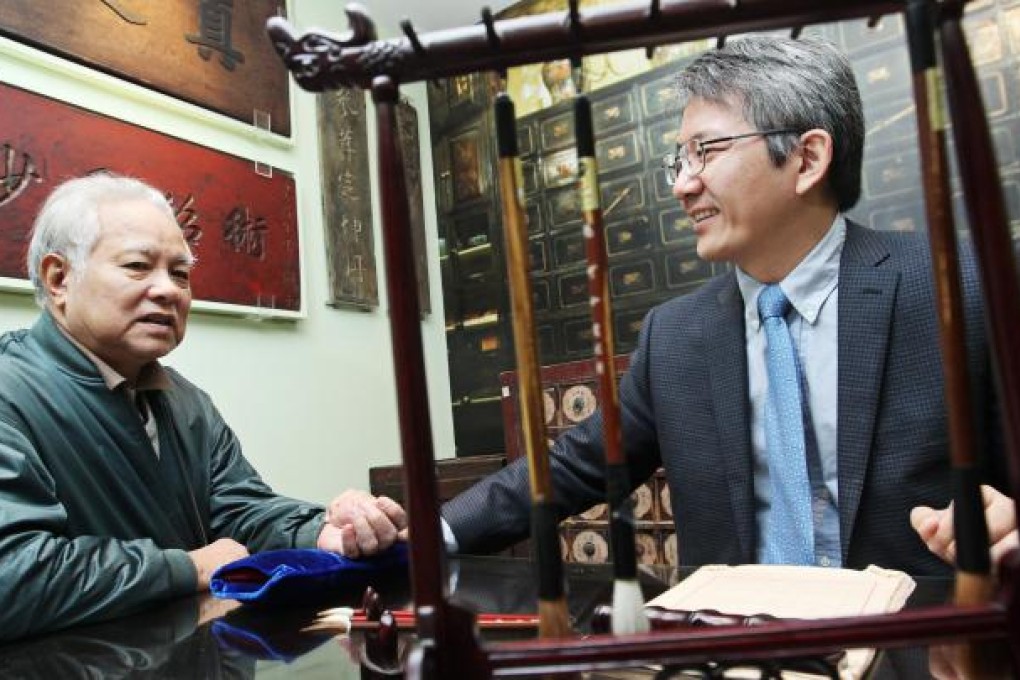Elderly get help paying the bills for traditional Chinese medicine

Diagnosed with stage-four liver cancer in 2009 and with surgery and chemotherapy no longer options, 79-year-old retiree Mr Xu was given six to nine months to live.
Friends told him Chinese medicine might offer a lifeline, and Xu (whose full name has been withheld for reasons of patient confidentiality) immediately paid a visit to the Chinese Medicine Clinic of Hong Kong Baptist University's (HKBU) School of Chinese Medicine.
In early 2010, he began a Chinese medicine treatment programme, which included at least weekly follow-ups and daily herbal prescription medicine. Xu found himself digging deep into his pockets to pay fees for the monthly treatment, which cost up to HK$3,000.
Fortunately, assistance soon arrived in the form of "privilege cards for the elderly", a subsidy programme by the Lions and HKBU Chinese Medicine Charity Foundation. Xu has saved more than HK$300 on each visit.
Since the programme's inception in September 2007, more than 2,000 elderly chronically ill, financially challenged patients in Hong Kong have benefited. The foundation has issued more than 2,300 privilege cards and 13,489 coupons, each with a face value of HK$100, according to the director of the foundation, Paulman Tse Yim-pui.
The foundation was jointly set up by HKBU and the Lions Clubs International of Hong Kong and Macau, and is funded through donations. Last month, the foundation received HK$200,000 from the Lions Club of Tuen Mun and HK$50,000 from Dr Lam Hoi-ham, former district governor of the Lions Club of Hong Kong and Macau - meaning more elderly patients can continue to benefit from the subsidy programme.